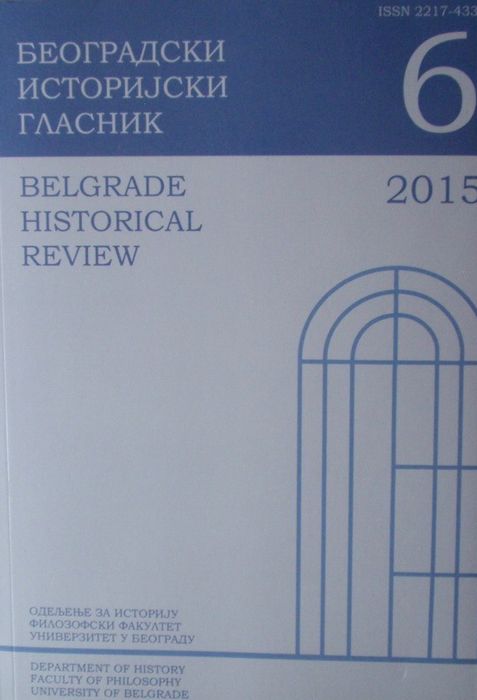ЦИОНИЗАМ И ПРАГМАТИЗАМ – ЗАШТО СУ СЕ JУГОСЛОВЕНСКИ ЈЕВРЕЈИ ИСЕЛИЛИ У ИЗРАЕЛ? (1948–1952)
ZIONISM AND PRAGMATISM – WHY YUGOSLAV JEWS EMIGRATED TO ISRAEL (1948–1952)
Author(s): Milan RadovanovićSubject(s): Jewish studies
Published by: Филозофски факултет, Универзитет у Београду
Keywords: motives; organized emigration; migration; Yugoslavia; Israel
Summary/Abstract: Between 1948 and 1952 five waves of organized emigration left Yugoslavia, taking approximately half of the 12.500 Jews who had survived the Holocaust to Israel. This was part of a much greater migration movement taking European Jews to the newly formed Israeli state, which took place within the same time frame. The reconstituting a Jewish State, as well as its strengthening through a continuous process of immigration was a decade long goal of the Zionist movement. Relying on this fact, Serbian historians have thus far identified Zionism as the main and often only driving force behind the mass emigration. Motives relevant to the movement are, however, much more numerous and complex than just the general Zionist context of which this movement undoubtedly was a part of. Th is paper approaches the organized emigration of Yugoslav Jews to Israel as a layered process, happening on three separate, but interacting levels. States, organizations of Yugoslav Jews and individuals were analyzed separately and the motives driving them defined based on the way in which they perceived the process in general. Aft er being subjected to diplomatic isolation consequent to the conflict with the Soviet Union, the Yugoslav post-war regime perceived the migration to Israel as being a potentially very potent propaganda tool. Although basically acting on the Zionist idea of the Jewish people returning to their historical homeland, The Federation of Jewish Communities, as well as the Hitachdut Olei was also attempting to secure its own, as i.e. the position of the Jewish community in communist Yugoslavia. Individual émigrés were far from thinking about any long-term goals, perceiving the migration process exclusively as possible solutions for everyday problems they were dealing with after the war. The paper is mostly based on documents kept in the Archive of the Jewish Historical Museum in Belgrade.
Journal: БЕОГРАДСКИ ИСТОРИЈСКИ ГЛАСНИК
- Issue Year: 2015
- Issue No: 6
- Page Range: 215-249
- Page Count: 35
- Language: Serbian

